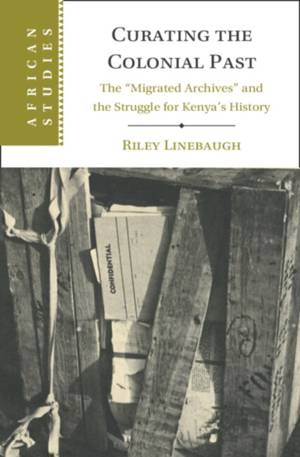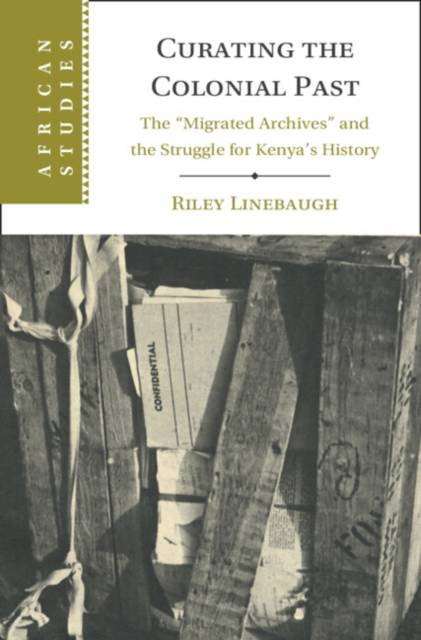
- Afhalen na 1 uur in een winkel met voorraad
- Gratis thuislevering in België vanaf € 30
- Ruim aanbod met 7 miljoen producten
- Afhalen na 1 uur in een winkel met voorraad
- Gratis thuislevering in België vanaf € 30
- Ruim aanbod met 7 miljoen producten
Zoeken
Curating the Colonial Past
The ‘Migrated Archives' and the Struggle for Kenya's History
Riley Linebaugh
€ 172,95
+ 345 punten
Omschrijving
In the early 1960s, British colonial administrations in East Africa organized the systematic destruction and removal of secret documents from colonies approaching independence. The Colonial Office in London arranged the deposit of these documents in high security facilities, where they remained inaccessible until 2011 following a compensation suit by Kenyan survivors of British colonial rule against the Foreign and Commonwealth Office. Curating the Colonial Past presents the first full length exploration of these 'migrated archives', chronicling the struggle between British attempts to conceal and Kenyan efforts to reveal evidence of the colonial past. Neither displayed nor destroyed, Riley Linebaugh explores how these records formed an archival limbo in which the British government delayed moral and legal judgement of empire. Yet, these practices did not go unchallenged. Linebaugh demonstrates how disputes over the 'migrated archives' facilitated the continuation of anticolonial sovereignty struggles beyond independence, struggles which persist into the present.
Specificaties
Betrokkenen
- Auteur(s):
- Uitgeverij:
Inhoud
- Aantal bladzijden:
- 342
- Taal:
- Engels
- Reeks:
Eigenschappen
- Productcode (EAN):
- 9781009525411
- Verschijningsdatum:
- 2/10/2025
- Uitvoering:
- Hardcover
- Formaat:
- Genaaid
- Afmetingen:
- 152 mm x 229 mm
- Gewicht:
- 625 g

Alleen bij Standaard Boekhandel
+ 345 punten op je klantenkaart van Standaard Boekhandel
Beoordelingen
We publiceren alleen reviews die voldoen aan de voorwaarden voor reviews. Bekijk onze voorwaarden voor reviews.








